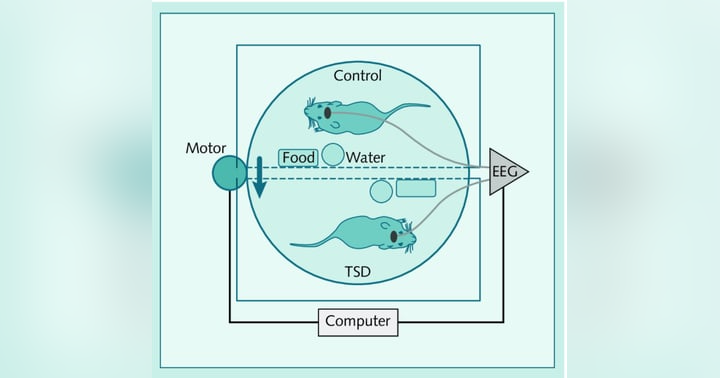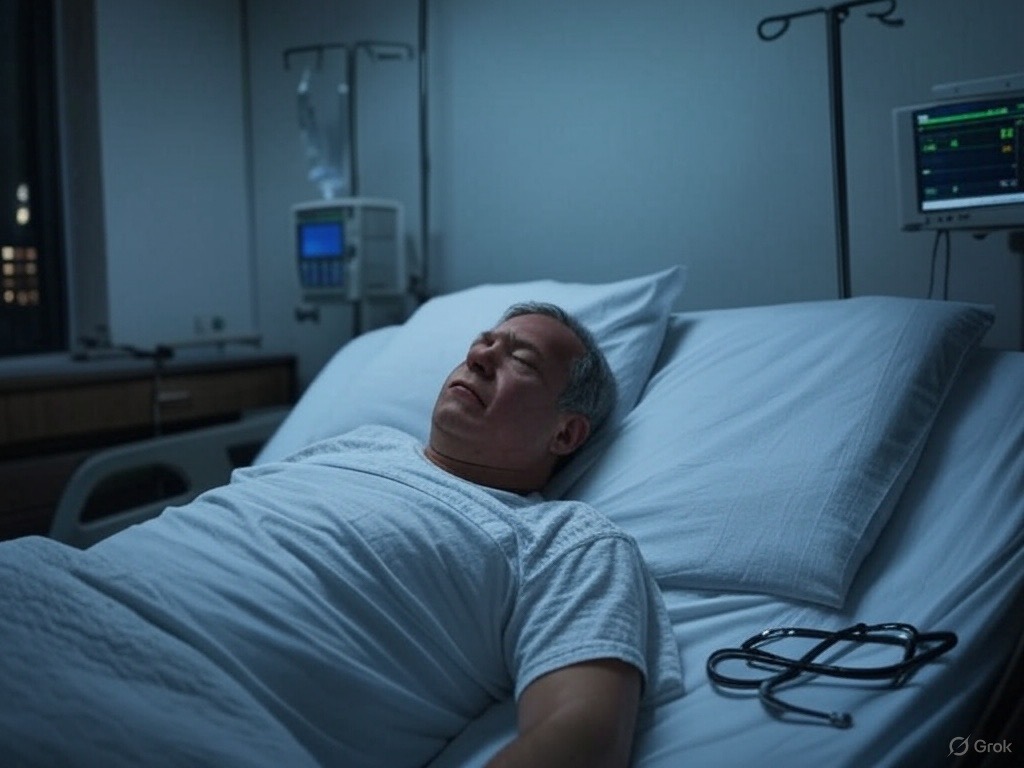Sleep in the ICU: What Do The Guidelines Say?

Sleep, I often say, is the elusive treasure of a hospital stay. Indeed, when hospitalized, there are many things that need to be done to the patient: diagnostic tests, laboratory studies, multiple visits from multiple clinicians, to name a few. So, no doubt, sleep gets sacrificed.
The problem is, when one is sick, sleep is perhaps the one thing that should never be sacrificed. Sleep is essential to recovery from illness, and it is very hard to get a good night’s sleep in the hospital. The ICU is no different.
So, the Society of Critical Care Medicine has issued guidelines with respect to sleep in the ICU. They were first published in 2018 and updated in March 2025. Here are the recommendations, all with low certainty or low quality of evidence:
- We suggest not using aromatherapy, acupressure, or music at night to improve sleep in critically ill adults.
- We suggest using noise and light reduction strategies to improve sleep in critically ill adults.
- We make no recommendation regarding the use of dexmedetomidine at night to improve sleep.
- We suggest not using propofol to improve sleep in critically ill adults.
- We suggest administering melatonin over no melatonin in adult patients admitted to the ICU.
- We suggest using a sleep-promoting, multicomponent protocol in critically ill adults.
Some are self-evident: We should not play music at night to help people sleep. The monitors, etc are noisy enough. I remember when I was in the ER for a fever, and they said, “Get some rest.” I could only chuckle. The light was right in my eyes and the ER was so noisy with all the people and x-ray machines, etc. I got NO rest that night, despite being desperate for it.
Yet, based on these guidelines, and perhaps some common sense, we can do things in the ICU to help promote the sleep for those patients who are not intubated and on ventilators:
- Light and Noise Reduction: We should definitely implement noise and light reduction strategies in the ICU at night, to help our patients get better sleep. Many hospitals have “sleep kits,” with ear plugs and eye masks. We should give them to all nonintubated patients in the ICU. In addition, we should dim the lights in the ICU and minimize the noise from the staff as much as possible.
- Vital Signs: There are some people who absolutely need their vital signs measured and monitored every hour, such as those with circulatory shock requiring vasopressor therapy. For others, however, do they really need vital signs measured every hour? For example, for a patient with DKA that needs the ICU for insulin infusion and hourly blood glucose monitoring, they do need hourly glucose checks. Yet, do they also need hourly BP? Would their care be just as safe if the vital signs were obtained every 2 or even 3 or even 4 hours? We should look into this.
- Monitors/IV pumps: Again, for patients who are hemodynamically stable, why not turn off the monitor in the room and continue monitoring in the nursing unit? That can help with less light and beeps/noise in the room. Same with the IV pumps. We should try and minimize the noise coming from the pumps, which have a very loud alarm (on purpose).
- Labs and X-rays: There are many hospitals that have “AM labs” drawn at 3 or 4 AM. That is so early. Why do we need to wake up our patients that early in the morning for a needlestick to measure labs? Why can’t we draw the labs at 6 AM instead? In fact, when I’m working, I order my morning labs at 6 AM, and I have not had any patient care compromised. Same is true with X-rays. Assuming you need to get an X-ray every day, why do the X-ray at 5 AM? Why not order the X-ray as soon as you arrive in the ICU for your shift, and then check the film right then and there?
- Melatonin: The updated guidelines suggest using melatonin to help with sleep in the ICU, and the great folks at the PulmCCM Substack had a nice appraisal of that data. When I use melatonin, I typically order 5-10 mg, rather than 3 mg as is typically defaulted.
These are practical tips to help our patients get better sleep in the ICU, so long as it is feasible, does not interfere with their treatment plan, and does not compromise on the monitoring necessary to properly care for their patients. I will try and implement as many of these strategies as possible in my ICU, as well.
I am absolutely certain that sleep deprivation can contribute to delirium in ICU patients, and we should do all that we can to avoid this. If I don’t have to talk to the patient right at 7:30 AM, I let them continue sleeping, and I will circle back with them later. We should do whatever we can to help our patients sleep in the ICU. They will be all the better for it.








